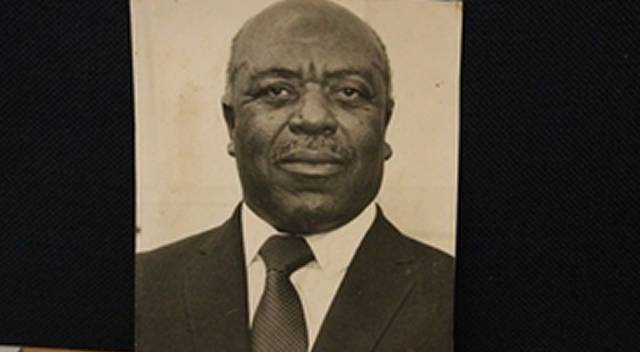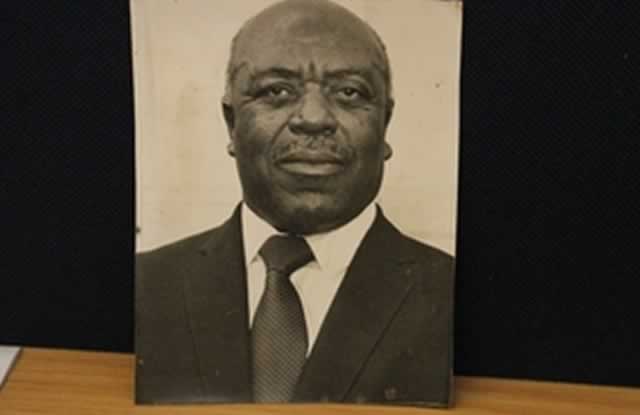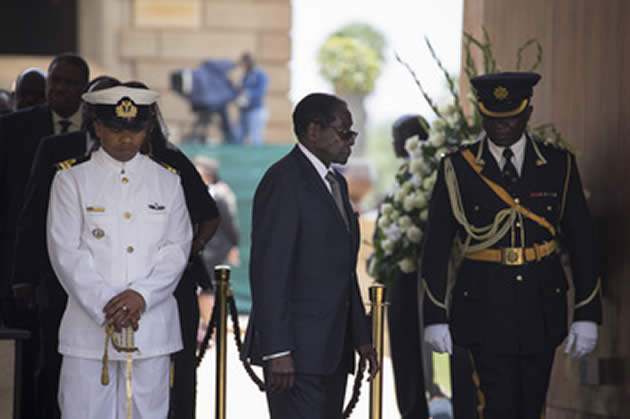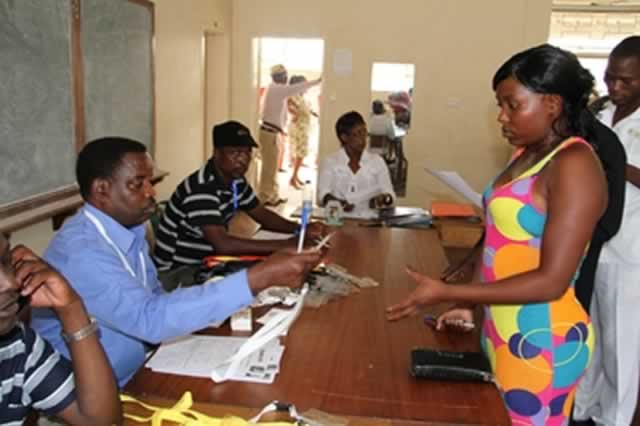Gwanzura declared national hero

Hebert Zharare and Marcia Gore
Veteran politician and liberation war icon Cde Eric Nyakudya Gwanzura, who died on Monday, has been declared a national hero and will be buried at the National Heroes Acre on Sunday. Cde Gwanzura died at his home in Chegutu. He was 89. Announcing his hero status in Harare yesterday, Zanu-PF national spokesperson, Cde Rugare Gumbo, said no one objected to Cde Gwanzura’s status given his contribution to the liberation struggle.
“The Politburo unanimously agreed that he be declared national hero and he will be buried on Sunday. We declared him national hero because of his contribution to the liberation of this country.
“He also was a trade unionist and the stadium (Gwanzura in Harare) was named after him,” Cde Gumbo said.
Cde Gwanzura was a Zanu-PF founding member, Central Committee member and a former Senator in the Parliament of Zimba- bwe.
Born on October 23, 1924 in Mashonganyika Village in Zvimba, Cde Gwanzura attended Govathema Primary School before he went to St Francis Xavier’s Kutama College for his secondary education, where President Mugabe was also a student.
He later went to Waddilove were he trained as a builder.
Cde Gwanzura worked as a teacher at Sandringham High School where he taught for two years before moving to Kawara Primary School, a Salvation Army institution in Mhondoro, where he also taught for two years.
He moved to the then Salisbury (now Harare) where he started a construction company that built houses and barns and it was during this period that he got involved in national politics.
At the invitation of a Major Lewis of the Salvation Army, he went to Bulawayo to work at Usher Institute in Matabeleland where he was tasked with assisting in infrastructure development.
Cde Gwanzura was one of the founding members of the National Democratic Party (NDP), together with revolutionaries such as President Mugabe, the late Dr Samuel Parirenyatwa, Cde Paul Mushonga, Cde George Silundika and Cde Jason Ziyapapa Moyo.
Along with Cde Reuben Jamela, Cde Gwanzura spearheaded the formalisation of unionism in the then Rhodesia to achieve empowerment of workers.
Under the leadership of the two, trade unionism became a force to reckon with in the region and linkages were established with other similar organisations in Southern Africa.
As succh, Cde Gwanzura’s direct contribution to the struggle for independence was first as a trade unionist. He was at the forefront of the empowerment of workers through organising industrial actions such as the famous strike of 1960.
At that point the trade union movement in Rhodesia had attracted the interest of other leaders such as Ghana’s Kwame Nkrumah who invited him to his country to collaborate with fellow West African unionists.
Because of Cde Gwanzura’s roles as a trade unionist and a political activist within the NDP, he became one of the Rhodesian regime’s most wanted people and he – along with other luminaries – was classified as an enemy of the government.
He was to be arrested and detained for two years at Whawha Prison. There was to be no respite after that, as he was again arrested and detained at Goromonzi for six months.
After Goromonzi, he was put under house arrest and was supposed to report to Southerton Police Station daily. He was to be arrested again and sent to Whawha Prison for two years.
None of this deterred Cde Gwanzura who took on even more active political roles and – together with other Zanu-PF cadres – played a major role in maintaining an underground communication network that linked party leaders and fighers outside the country with the people back home.
Often he had to travel to Zambia to brief the leadership in exile and to get instructions to give to fighers and politicians in Zimbabwe.
He was part of the delegations that went to the Geneva Conference and the Lancaster House talks.
After the Lancaster House talks he settled in Chegutu where he bought Café Capri.
it was not by chance or a purely business decision to buy Café Capri: during colonial times he had refused to buy a pie from that establishment using a window marked “For natives only”, and was arrested for his act of defiance.
Cde Gwanzura served as a Senator in the new Parliament of Zimbabwe and was a member of the Chairman’s Panel as Deputy Chairman of Committees. Cde Gwanzura was also active in the processes leading up to the signing of the Unity Accord in 1987.
He was active in the Zanu-PF Mashonaland West provincial structures and was a national Central Committee member.
With his brother Phanuel, they developed a stadium in Highfield, which was to be named Gwanzura Stadium.
He is survived by two wives and 23 children.
Mourners are gathered at Number 12 in 10th Avenue in Mabelreign.











Comments